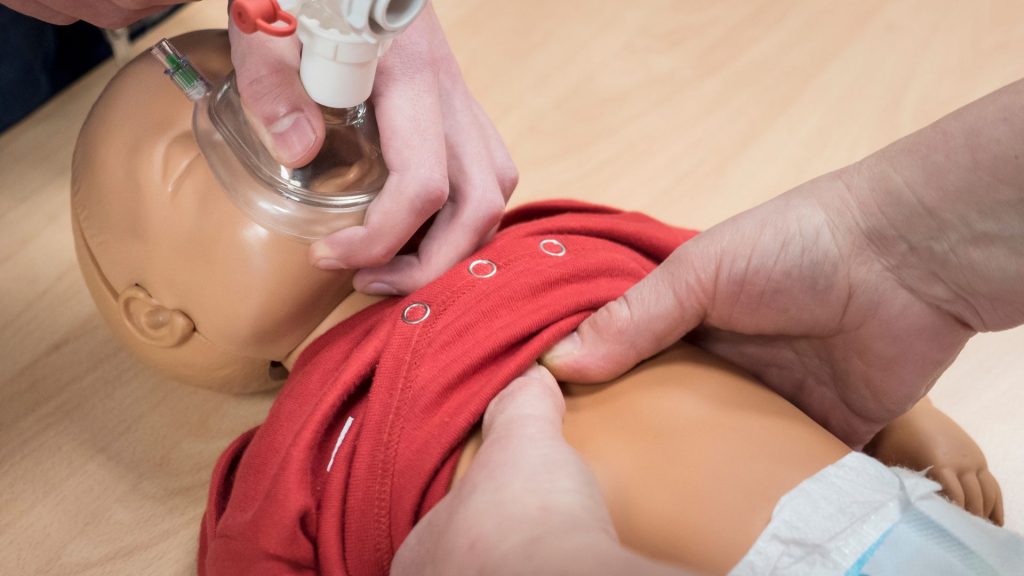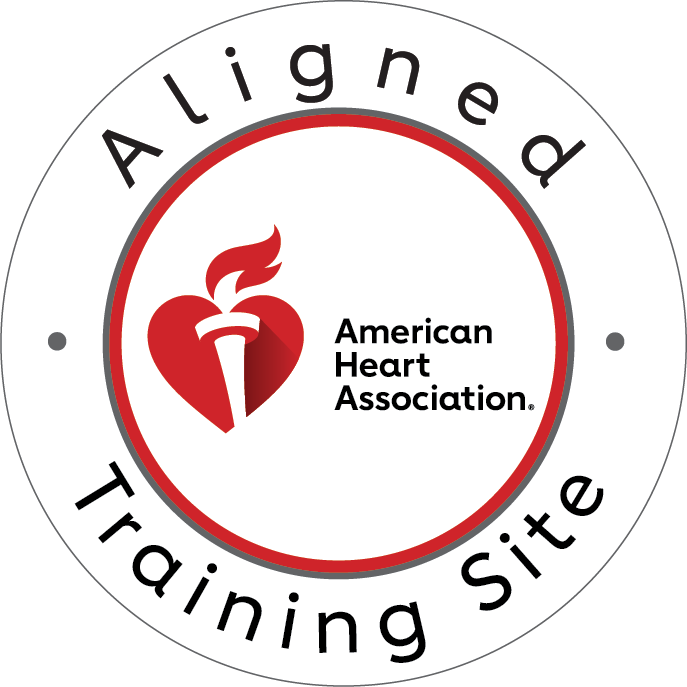In the fast-paced world of healthcare, being prepared for emergencies can make the difference between life and death. Advanced Cardiovascular Life Support (ACLS) and Pediatric Advanced Life Support (PALS) certifications equip healthcare professionals with the critical skills needed to respond effectively to cardiac emergencies in both adult and pediatric populations. This comprehensive guide explores the essential requirements, processes, and benefits of obtaining these vital certifications.
Understanding ACLS Requirements: The Foundation of Advanced Cardiac Care
Advanced Cardiovascular Life Support certification represents a crucial credential for healthcare providers who may encounter adult cardiac emergencies. The certification process ensures that professionals possess the knowledge and skills to manage cardiac arrest, stroke, and other cardiovascular emergencies with confidence and precision.
Who Needs ACLS Certification?
ACLS certification is typically required for healthcare professionals who work in critical care settings or may need to respond to cardiac emergencies. These professionals include:
- Physicians (particularly those in emergency medicine, cardiology, anesthesiology, and critical care)
- Nurses working in emergency departments, intensive care, and cardiac care units
- Paramedics and emergency medical technicians
- Respiratory therapists
- Physician assistants and nurse practitioners
- Anesthesia providers and surgical team members
Many healthcare facilities mandate ACLS certification as a condition of employment for staff working in these areas, recognizing its importance in ensuring quality patient care during critical situations.
ACLS Certification Prerequisites
Before pursuing ACLS certification, candidates must meet several foundational requirements:
- Current Basic Life Support (BLS) certification, which covers fundamental CPR skills
- Professional healthcare credentials or be in training for a healthcare role
- Understanding of cardiac rhythms and basic electrocardiogram (ECG) interpretation
- Familiarity with medications commonly used in emergency cardiac care
These prerequisites ensure that ACLS candidates build upon a solid foundation of basic emergency response knowledge before advancing to more complex interventions.
The ACLS Certification Process
Obtaining ACLS certification involves a structured learning process designed to develop both theoretical knowledge and practical skills:
Pre-course preparation: Candidates typically complete self-study activities using the ACLS provider manual and online resources, reviewing algorithms, medications, and cardiac rhythm recognition.
Classroom instruction: The ACLS course typically spans two days (approximately 16 hours) and includes:
- Didactic sessions covering advanced cardiovascular emergencies
- Case-based learning scenarios
- Skills stations for practicing techniques like airway management
- Small group discussions and problem-solving activities
Skills assessment: Candidates demonstrate proficiency in:
- High-quality CPR and effective team dynamics
- Management of respiratory arrest and airway obstruction
- Cardiovascular pharmacology
- Electrical therapy, including defibrillation and cardioversion
- Recognition and management of acute coronary syndromes and stroke
Written examination: A comprehensive test evaluates understanding of ACLS protocols, algorithms, and decision-making processes.
Successful completion of both the skills assessment and written examination results in ACLS certification, which remains valid for two years before renewal is required.
PALS Requirements: Specialized Care for Pediatric Emergencies
Pediatric Advanced Life Support focuses on the unique needs of children during medical emergencies. PALS certification prepares healthcare providers to recognize and respond to infants and children at risk of cardiopulmonary arrest and shock.
Healthcare Professionals Who Should Obtain PALS Certification
PALS certification is particularly valuable for healthcare providers who regularly care for children, including:
- Pediatricians and emergency medicine physicians
- Pediatric nurses and nurse practitioners
- Pediatric intensive care unit staff
- Emergency department personnel
- School nurses and pediatric office staff
- Paramedics and emergency response teams
- Anesthesiologists working with pediatric patients
The specialized knowledge gained through PALS training addresses the anatomical, physiological, and developmental differences that make pediatric emergencies distinct from adult situations.
Prerequisites for PALS Certification
Similar to ACLS, PALS certification requires that candidates have:
- Current BLS certification
- Professional healthcare credentials or be in healthcare training
- Basic understanding of pediatric assessment
- Familiarity with ECG rhythm interpretation as applicable to pediatric patients
These prerequisites ensure candidates have the foundational knowledge needed to build advanced pediatric emergency care skills.
The PALS Certification Journey
The PALS certification process follows a format similar to ACLS but with content specifically tailored to pediatric emergency care:
Pre-course preparation: Candidates review the PALS provider manual, pediatric assessment triangle, recognition of respiratory distress and failure, and shock management.
Classroom instruction: The typical two-day course (approximately 14-16 hours) includes:
- Systematic pediatric assessment techniques
- Recognition and management of respiratory emergencies
- Shock recognition and treatment approaches
- Cardiac arrest management in infants and children
- Post-cardiac arrest care and stabilization
Skills assessment: Candidates demonstrate competency in:
- Pediatric basic life support techniques
- Management of respiratory emergencies
- Vascular access techniques appropriate for children
- Electrical therapy with age-appropriate considerations
- Team-based resuscitation approaches
Written examination: A comprehensive test evaluates understanding of PALS algorithms and decision-making processes.
PALS certification remains valid for two years, after which renewal is necessary to maintain current skills and knowledge.
Comparing ACLS and PALS Requirements: Similarities and Differences
While both certifications share the common goal of preparing healthcare providers for emergencies, several key differences reflect the unique needs of adult versus pediatric patients:
Shared Elements Between ACLS and PALS Requirements
- Both require current BLS certification as a prerequisite
- Both follow a similar format of pre-course preparation, classroom instruction, skills assessment, and written examination
- Both emphasize high-quality CPR and effective team dynamics
- Both certifications are typically valid for two years
- Both include simulation-based learning and case scenarios
Key Differences in Requirements and Focus
- PALS places greater emphasis on early recognition of respiratory distress and shock, as these often precede cardiac arrest in children
- ACLS focuses more extensively on cardiac rhythm interpretation and pharmacology
- PALS incorporates developmental considerations and family-centered care approaches
- Medication dosages, equipment sizes, and intervention techniques differ significantly between the two certifications
- PALS includes content on congenital heart conditions that may affect pediatric emergency care
Understanding these similarities and differences helps healthcare professionals determine which certification(s) best align with their practice setting and patient population.
Renewal Requirements: Maintaining Current Certification
Both ACLS and PALS certifications require renewal every two years to ensure healthcare providers maintain their skills and stay current with evolving guidelines and best practices.
ACLS Renewal Process
The ACLS renewal course is typically shorter than the initial certification, usually lasting about 8 hours. The renewal process includes:
- Review of updated guidelines and protocols
- Practice of essential skills and scenarios
- Demonstration of competency in key interventions
- Completion of a written examination
Many providers find that maintaining regular practice and reviewing materials throughout the certification period makes the renewal process more straightforward.
PALS Renewal Requirements
Similar to ACLS, PALS renewal courses are condensed versions of the initial certification, focusing on:
- Updates to pediatric emergency care guidelines
- Refreshing critical skills and decision-making abilities
- Case-based scenarios that test the application of knowledge
- Written assessment of understanding
Healthcare providers who work regularly with pediatric patients often find PALS renewal less challenging due to their ongoing clinical experience.
Benefits of Meeting ACLS and PALS Requirements
The value of obtaining and maintaining these certifications extends far beyond meeting employment requirements:
Professional Advantages
- Enhanced career opportunities and job marketability
- Potential for increased responsibility within healthcare teams
- Qualifications for specialized roles in emergency and critical care
- Demonstration of commitment to professional development
- Confidence in leading emergency response situations
Patient Care Improvements
- Reduced response time during critical events
- More coordinated team-based approaches to emergencies
- Higher quality CPR and emergency interventions
- Improved patient outcomes following cardiac and respiratory events
- Standardized approaches that align with evidence-based guidelines
The combination of professional growth and enhanced patient care makes these certifications invaluable for healthcare providers.
Finding Quality Certification Programs
When seeking ACLS and PALS certification, healthcare professionals should consider several factors to ensure they receive high-quality training:
Key Considerations When Choosing a Certification Provider
- Accreditation status and alignment with American Heart Association guidelines
- Instructor qualifications and experience
- Student-to-instructor ratios during skills sessions
- Quality and availability of practice equipment
- Course completion rates and participant feedback
- Availability of remediation support if needed
- Convenience of scheduling options
These factors contribute significantly to the educational experience and the development of competence in emergency care skills.
Taking Action: Next Steps for Certification
If you’re ready to obtain or renew your ACLS or PALS certification, following a structured approach will help ensure success:
- Verify your current BLS certification status and renew if necessary
- Select an accredited training provider in your area
- Register for your desired course at least 2-4 weeks in advance
- Obtain and begin studying the provider manual immediately
- Complete any required pre-course self-assessment
- Arrange your schedule to allow sufficient time for both preparation and attendance
- Consider forming a study group with colleagues pursuing the same certification
Excellence in ACLS and PALS Training in Indianapolis
For healthcare professionals in the Indianapolis area seeking high-quality certification options, CPR Indianapolis offers exceptional training opportunities. As an American Heart Association training site, CPR Indianapolis provides initial certifications and renewals in BLS for Healthcare Providers, ACLS, PALS, and CPR and First Aid courses.
What sets CPR Indianapolis apart is their commitment to stress-free, hands-on learning experiences. Their experienced instructors create a supportive environment where participants can develop confidence along with competence. Whether you’re seeking PALS certification Indianapolis or ACLS certification Indianapolis, their comprehensive programs meet all American Heart Association requirements while providing a positive learning experience.
Take the next step in your professional development by contacting CPR Indianapolis today to schedule your ACLS or PALS certification course. Join the countless healthcare professionals who have discovered why CPR Indianapolis is considered the best CPR training provider in Indianapolis.
Conclusion: The Value of Meeting ACLS and PALS Requirements
ACLS and PALS certifications represent more than credentials to add to your professional profile—they equip healthcare providers with life-saving skills that can make critical differences in emergencies. By understanding and meeting the requirements for these certifications, healthcare professionals demonstrate their commitment to excellence in patient care and emergency response.
The structured learning processes, hands-on practice, and comprehensive assessments ensure that certified providers possess both the knowledge and skills needed to act decisively in high-stress situations. Whether responding to an adult cardiac emergency or a pediatric respiratory crisis, certified providers bring confidence, competence, and coordinated approaches that optimize patient outcomes.
As healthcare continues to evolve, maintaining current certification in these essential areas remains a professional responsibility and a personal commitment to providing the highest standard of care possible. The investment of time and effort in obtaining and maintaining ACLS and PALS certifications yields immeasurable returns in professional capability, team effectiveness, and ultimately, in lives saved.





